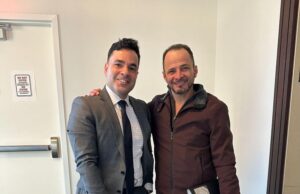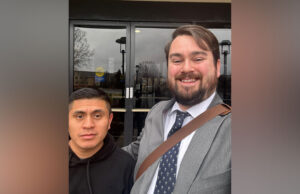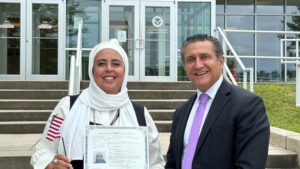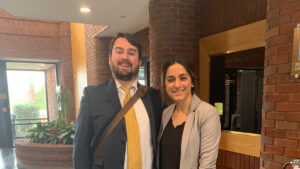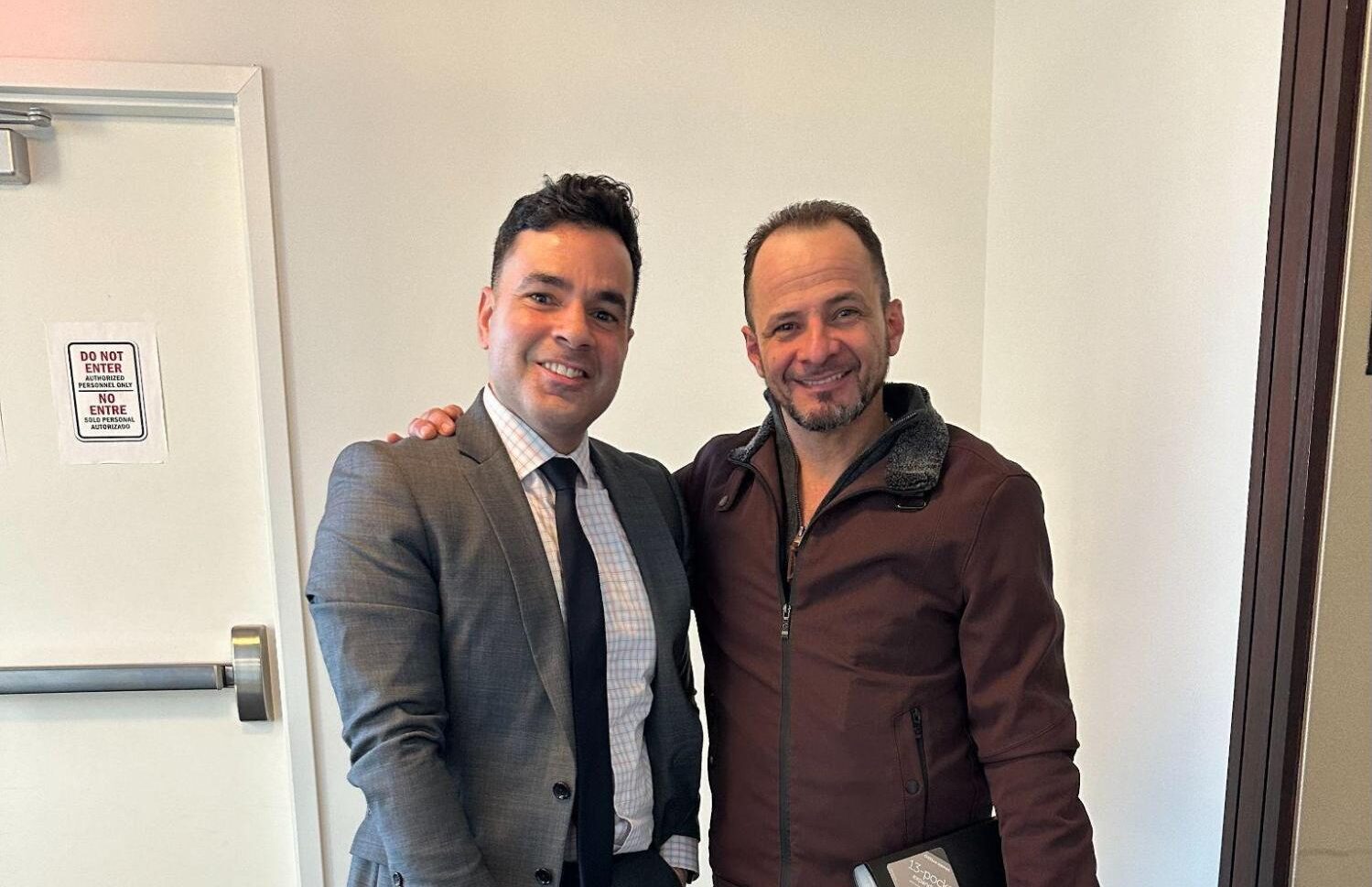Los Soñadores Pueden Seguir Soñando En Grande Po
GET THE LEGAL HELP YOU NEED
Los soñadores pueden seguir soñando en grande. Por ahora tienen la "Acción Diferida"
17 de mayo de 2014
Hace dos semanas, el Procurador General de Virginia, Mark Herring hizo un anuncio muy importante: dar a los beneficiarios de la Acción Diferida el derecho a la matrícula como residentes del estado. Un beneficio que fue bien recibido por los soñadores , sus padres y toda la comunidad latina que se mostró complacida y aliviada. Con este nuevo anuncio, cada vez más jóvenes graduados de secundaria tendrán un asiento en nuestras instituciones de educación superior. Algo que se consideraba un lujo fuera del alcance para la mayoría de los que tenían la acción diferida.
El anuncio de la Procuraduría General puso de nuevo en su lugar la acción diferida como un beneficio e hizo que más y más miembros de la comunidad latina se interesen acerca de este beneficio de inmigración y sobre quiénes pueden ser elegibles para aplicar.
Por todas estas razones, he decidido dedicar este artículo a la acción diferida. ¿Que es la acción diferida , quienes pueden beneficiarse de ella y que beneficios concede al solicitante?
Mucha gente ha oído la palabra del movimiento ” Dreamers “. Un grupo de jóvenes que entraron a los EE.UU. como menores sin inspección o con inspección, pero que su estatus quedó caducado. Crecieron en los EE.UU. , es el único país que han conocido, fueron a la escuela y después de graduarse de la secundaria, quedaron sin posibilidad de aplicar para las universidades o aceptar un empleo. Estar en esta situación es difícil para los soñadores, y por varios años, han venido solicitando al Congreso que promulgue una ley que los convierta en residentes legales permanentes de los EE.UU. .
Como mucha gente sabe, durante 3 años consecutivos el Congreso no ha logrado pasar el DREAM ACT. Ante el fracaso del los legisladores para aprobar el DREAM Act, el gobierno de Obama promulgó una ley temporal similar al DREAM Act. Una ley que ha dado a los jóvenes indocumentados que crecieron en los EE.UU. el derecho de recibir un estatus legal temporal para ir a la universidad, para poder aceptar un empleo y para viajar fuera de los EE.UU. y de regresar legalmente de nuevo.
Para calificar para la Acción Diferida , el candidato debe tener:
1 ) Haber entrado a los EE.UU. antes del 15 de junio de 2007.
2 ) Ser menor de 16 años en el momento de la entrada.
3 ) Estar en la escuela, en un programa de GED o haber terminado la escuela secundaria o haberse alistado en las fuerzas armadas.
4 ) No haber sido condenado por delitos graves.
5) El candidato a la Acción Diferida , también tiene que demostrar residencia física ininterrumpida desde el momento de la entrada a los EE.UU. .
1) El momento de la entrada es uno de los requisitos más importante de la acción diferida. Nadie puede beneficiarse de la exención si él o ella no puede probar que entró a los EE.UU. antes del 15 de junio de 2007. Inmigración tiene reglas estrictas sobre la manera de demostrar su residencia. En casos de TPS , la persona puede presentar cartas de familiares, amigos , empleadores que declaren para probar la duración de la residencia en los EE.UU., para la acción diferida, la persona tiene la obligación de proporcionar documentos serios tales como declaraciones de impuestos, certificados médico y de la escuela.
2) La edad a la entrada a los EE.UU. es también muy importante, el candidato debe haber entrado al país antes de cumplir 16 años. No hay ninguna excepción a los requisitos de edad.
3) Después del requisito de la edad se deriva la necesidad educativa. Para calificar, el candidato debe estar en la escuela, o haberse graduado de la escuela secundaria, haber ganado un GED o haberse enrolado en las fuerzas armadas de los Estados Unidos . Si el candidato no terminó la escuela debe inscribirse en una de secundaria o en un programa de GED para ser elegible para presentarse.
4) Otra condición importante para recibir la acción diferida es el buen carácter moral. Este es un requisito muy amplio y legal. Es muy difícil de explicar en detalles en este artículo. Sin embargo, recomiendo encarecidamente, que si el candidato tiene antecedentes penales discuta su caso con un abogado de inmigración con experiencia.
5) No es suficiente con demostrar que el candidato entró a los EE.UU. antes del 15 de junio de 2007, sino también, él o ella tiene la obligación de probar que nunca salió de los EE.UU. por un tiempo considerable para interrumpir su residencia.
En ausencia de una reforma migratoria, la acción diferida se convirtió en una forma muy importante recibir un estatus legal temporal.
Si usted, sus amigos o seres queridos creen que cumplen con los requisitos establecidos anteriormente, le recomiendo ponerse en contacto con un abogado de inmigración con experiencia y discutir su caso rápidamente.
Introduction To Fayad Law, P.C.
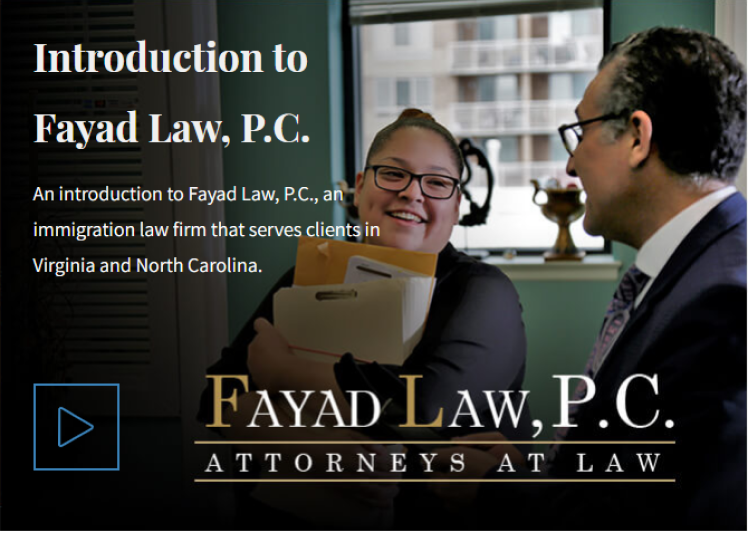
Latinos News
Have questions about your rights? Ready to discuss your
immigration case? Contact Fayad Law, P.C. now.
What Sets Fayad Law, P.C. Apart?

Firsthand Experience
as Immigrants

English, Arabic, French,
Russian, Spanish, and Farsi

Proven Track
Record of Success

Personal, One-on-One
Attention

You Stay Informed
at All Times

We Strive for Client
Satisfaction
FAQs - FREQUENTLY ASKED QUESTIONS
There are dozens of different types of visas available under the provisions of the Immigration and Nationality Act (INA), but they can all be placed in one of two categories: immigrant and nonimmigrant visas. The former is for individuals who are hoping to establish permanent residency with a green card and perhaps even to pursue the path to naturalization and citizenship. The latter is for those who are only planning a temporary visit to the United States, such as for the purpose of conducting business or attending school.
The INA sets limits on the number of people who will be permitted to immigrate to the United States each year using certain types of visas, while other visas are unlimited. Family immigration visas for the immediate relatives of U.S. citizens are available on an unlimited basis, while there are annual quotas set for the relatives of lawful permanent residents and extended family of citizens, with a maximum quota of 480,000. The number of employment immigration visas is limited to 140,000 per year.
Pathways to citizenship include service in the United States military and adoption, but a large percentage of all people who become citizens do so through the process of naturalization. The basic qualifications for naturalization include:
- Living in the U.S. as a permanent resident for 5 years (or 3 years for a spouse of a U.S. citizen)
- Being at least 18 years of age
- Living within the state where you will apply for citizenship for at least 3 months prior to the application date
- Being physically present in this country for at least half of the past 5 years
- Maintaining continuous residence in this country from the date you submit your application for naturalization
- Being able to read, write and speak English
- Have a basic understanding of U.S. government and civics
It is also necessary to supply evidence that you are a person of good moral character and are attached to the principles of the U.S. Constitution. We can assist you with proving these factors, as well as preparing your petition and helping you get ready for the tests.
In June of 2012, the Obama Administration directed the Department of Homeland Security (DHS) to begin applying a policy that is referred to as Deferred Action for Childhood Arrivals (DACA). Under deferred action, DHS is exercising discretion in its execution of the laws concerning deportation and removal of immigrants who are illegally present in the United States. Deferred action is not a change to the existing law, but is instead a change in the way that the law is being applied. You may qualify for relief under DACA if you were younger than 31 years of age on June 15, 2012, came to the U.S. before your 16th birthday, have continuously resided in this country since June 15, 2007 and are either currently in school or have already graduated from high school or earned your general education development (GED) certificate, among other criteria. With deferred action, you may be able to avoid being deported, though it does not grant any change of immigration status.
In its review of immigrant visa petitions, the U.S. Citizenship & Immigration Services (USCIS) weighs factors related to the ties that the prospective immigrant has in the United States and the reasons why he or she wants or needs to come to live in this country. For example, a family immigration petition will not be approved unless the foreign national has immediate relatives such as a spouse, mother or father, child or sibling already living here as a citizen or green card holder. An employment immigration petition is more likely to receive approval if the applicant has a job offer in this country and is coming to fill a position that cannot reasonably be filled from the local labor market. A foreign national who is fleeing persecution in his or her home country may be granted an immigrant visa as a refugee or asylee.
There are many strategies for challenging a removal action. If the proposed deportation is based on a criminal conviction, it may be possible to appeal the conviction in order to have it overturned. Another option is to petition for cancellation of removal, a type of immigration relief which is available to people who are of good moral character and whose deportation would subject a family member who is a citizen or permanent resident to extreme hardship. The key to success in stopping deportation is to take immediate action by hiring a Virginia immigration attorney from our firm as soon as possible. Contact us now at Fayad Law, P.C. for a confidential consultation and to let us get started on your case!
Fayad Law, P.C. maintains offices in Richmond and Fairfax, Virginia. We work with individuals, families, and businesses across the world, providing them with assistance in resolving the legal issues involved with helping their loved ones and employees to immigrate to the United States. We work directly with foreign nationals living abroad, guiding them through the process of obtaining immigrant and nonimmigrant visas for entry to the U.S.
Real Clients, Real Testimonials
Contact Us Today
Have questions about your rights? Ready to discuss your immigration case? Contact Fayad Law, P.C. now.








